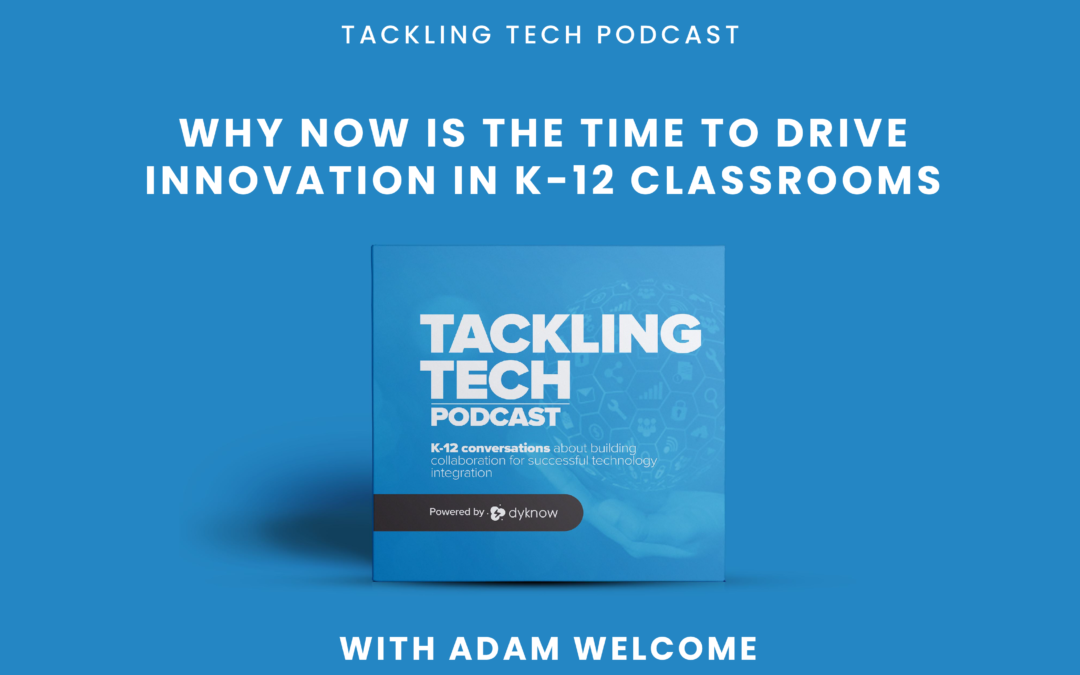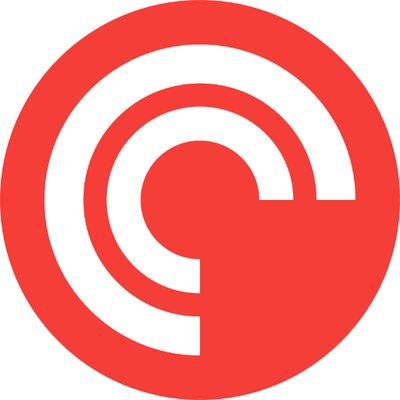On this episode on Tackling Tech, powered by DyKnow, Tierra interviews Adam Welcome, an Elementary Principal, speaker, consultant, author, and former teacher, and Director of Innovation. Adam shares how students and teachers can utilize podcasting in the classroom. When in comes to integrating technology in the classroom, Adam wants educators to stop talking and start doing.
Listen to Season 2, Episode 2:
Available wherever you listen to podcasts:
Tools Impacting K-12 Classroom Innovation
During his travels, before COVID hit, Adam noticed a huge trend within the schools he was speaking to and that was bad technology integration. The importance of using technology to support and transform education is a massive factor in effective technology integration. Educators have to use technology for more than just the technology itself. Adam recommended 2 tools that he thinks are thoroughly impacting classroom innovation for K-12 educators.
Flipgrid: Flipgrid defines itself as “the leading video discussion platform used by PreK to Ph.D. educators, students, and families around the world.” Adam describes his liking for Flipgrid because of its range of uses. Students are able to learn multiple skills while simultaneously be engaged in a lesson. Flipgrid allows students to talk, record, edit, respond, and bring the technology piece into the lesson.
Podcasting: An up and coming trend within the K-12 world. Adam describes podcasting as one of the most impactful factors for teachers to use technology in the classroom. Lessons can be recorded in podcast form for students to listen and follow along to. This also gives students the range to move at their own pace and refer back to a concrete piece of content for review. Like Flipgrid, podcasting allows for students to connect many mediums of applicable skills like communicating, editing, writing, and collaboration no matter what career is chosen in the future.
Best Innovation Practices for K-12 Educators
Adam expressed how he believes that most ideas, goals, and risks never get done because they never get started. When talking about innovation, there is no ‘perfect’ time to start. Just starting is perfect in itself. So many excuses get cut out of the equation when you just start. “Stop Talking, Start Doing” the title of one of Adam’s podcast episodes from Adam Welcomes. He stated, “sometimes you just have to start with the basics and then continue to up your game. You don’t have to have all the perfect tools, you just have to start.”
When new ideas or tools come into the classroom at an unexpected time, it is easy to fall into, what Adam calls, TMI, or too many initiatives. Teachers oftentimes take on too much at one time which in turn results in not being able to master or fully utilize the tools being implemented. To eliminate this problem Adam recommends having tough conversations to identify what is and isn’t necessary, what is and isn’t working, and where can they go from here.
“There is no growth in the comfort zone,” Adam stated. Tough conversations are uncomfortable and necessary to get to the root of the potential of a school district. “If you want to move forward and make a change sometimes you have to be uncomfortable”
Maintaining Innovation Progress in the Future
A huge factor in maintaining a robust and effective classroom culture as well as curriculum teachers need to survey teachers and students to find out what went well and what didn’t go well. Adam explains how this direct input allows teachers to reflect and analyze what was and was necessary for their classroom.
“Think big but act small,” used many times by Adam. He advises teachers to try it, whatever tool or teaching style, try it in a smaller setting and build from there. Building is a great way to test the waters and see how implementing something new into your classroom might affect students and their learning. Stop forcing tools into your classroom. If something doesn’t work, don’t try to make it work. There are hundreds of tools out there that can better work for you and your students. Try something new but remember to think big and act small.
Adam left us with some advice for educators as they begin the 2021 year. He emphasizes that you don’t have to be a workaholic to be a hard worker. He emphasized that teachers need to reevaluate what they are doing in their classrooms if they are working crazy hours. If you set limits, you are able to get stuff done while building efficiency. Don’t spend an hour on something that could take 10 minutes. Adam stated how he believes that sometimes good enough is enough. “Not everything has to be done with 100% fidelity. If the outcome of a task will not change whether it has been completed with 100% effort or 75% effort, then don’t spend the extra time on it.





